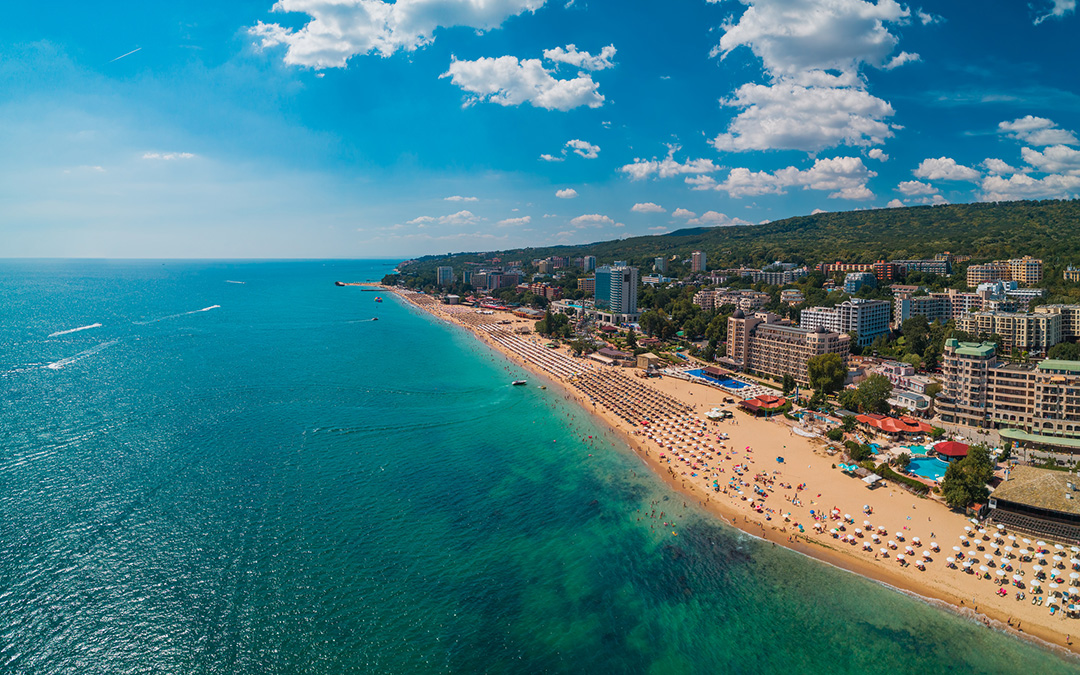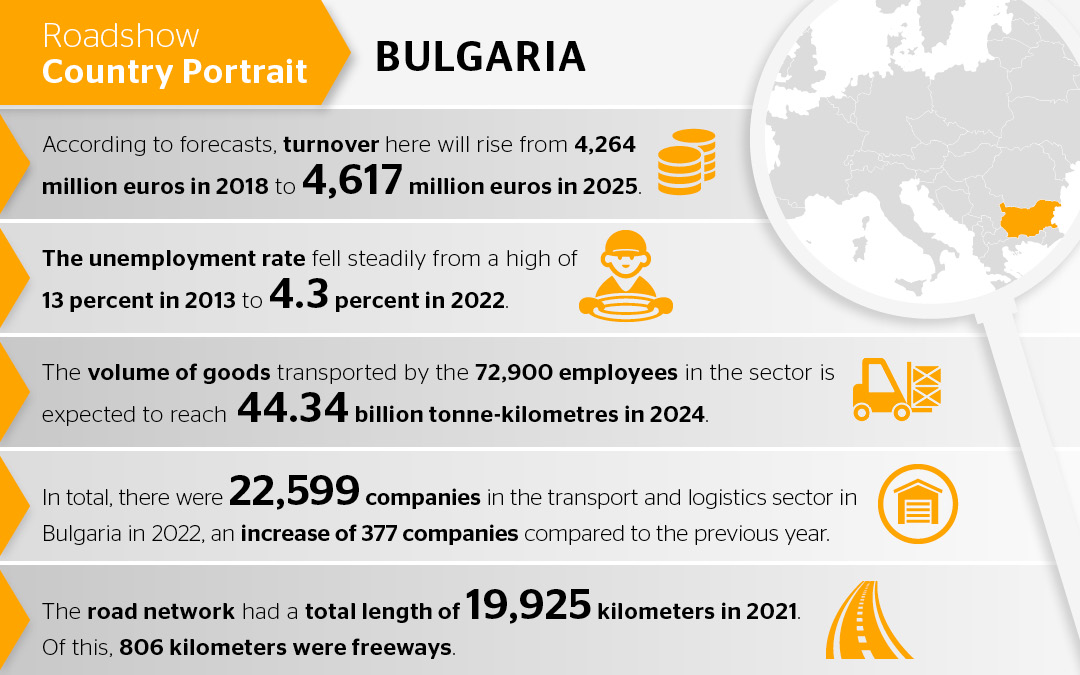Bulgaria is becoming increasingly popular as a vacation destination. It is not only the number of holidaymakers that is increasing, but also the key figures for road freight traffic. A steady increase is forecast for the coming years: Turnover is expected to rise from 4,264 million euros in 2018 to 4,617 in 2025. The volume of goods transported by the 72,900 employees in the sector is expected to reach 44.34 billion tonne-kilometres in 2024.
Accordingly, there are a lot of freight forwarders and logistics companies in Bulgaria – including very large ones. In 2021, Bulgarian Post had the largest network of pick-up and delivery points in the country with over 2,900 locations. Econt is the second largest freight forwarder with 550 locations, followed by Speedy with 409. In total, there were 22,599 companies in the transport and logistics sector in Bulgaria in 2022, an increase of 377 companies compared to the previous year.
Still need to catch up
The economy in this country of 6.8 million inhabitants in south-eastern Europe has also developed positively in other respects in recent years. Nevertheless, there is still some catching up to do compared to the rest of Europe. In 2022, Bulgaria’s gross domestic product (GDP) was estimated at 79.3 billion euros. That was 11,669 euros per capita. Economic growth was expected to be 3.4 percent in 2022 and 1.4 percent in 2023. The unemployment rate fell steadily from a high of 13% in 2013 to 4.3% in 2022.
Around 30.8% of the workforce worked in industry in 2021, making it the eighth-largest industrial sector in the EU. Agriculture contributed 4.4% to GDP in 2022, the third-highest figure in Europe. The service sector had a share of 57.7 percent in 2022, which was below average for Europe.
 Bulgaria’s beaches are attracting more and more holidaymakers. Photo: iStock
Bulgaria’s beaches are attracting more and more holidaymakers. Photo: iStock
Foreign trade in deficit
Bulgaria’s foreign trade had a trade deficit of 7 billion euros in 2022. Important export goods were non-ferrous metals and petroleum products; the main export countries were Germany and Italy. Imports were dominated by petroleum products and electrical machinery and equipment. The main suppliers were Russia and Germany.
In 2022, Bulgaria imported services worth around 6.4 billion euros and exported around 11.7 billion euros. The country therefore achieved a surplus of 5.2 billion euros in the services sector. In 2022, Bulgaria exported goods worth 47 billion euros. The most important export goods were electrical machinery and apparatus (10.7%), non-ferrous metals (9.5%) and petroleum and petroleum products (6.4%). Germany was the largest buyer of Bulgarian exports with 13.7%, followed by Romania (9.2%) and Italy (7.2%).
In the same year, Bulgaria imported goods worth 54 billion euros. The main import goods were electrical machinery and equipment (9.3%), petroleum and petroleum products (8.3%) and road vehicles (6.6%). The largest buyers were Germany (12.4%), Turkiye (8.2%) and Romania (6.8%).
Public debt was estimated at 21.8% of GDP in 2022, the second-lowest level in the EU. The government deficit amounted to 0.8% of GDP.
The Bulgarian road network had a total length of 19,925 kilometers in 2021. Of this, 806 kilometers were freeways (2010: 437), 2,883 were main or national roads, 4,019 were secondary or regional roads and 12,217 kilometers were other roads such as unpaved roads. The signs are pointing to further expansion: according to forecasts, turnover in the road construction sector will increase to around 1.76 billion euros by 2025.
What did you have on the trailer on your last tour through Bulgaria? Tell us in a comment!


0 Comments